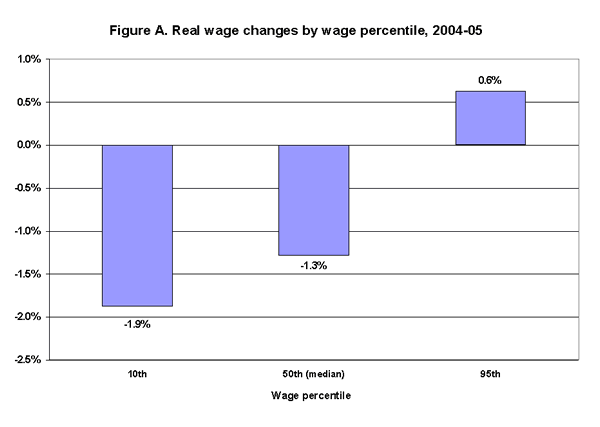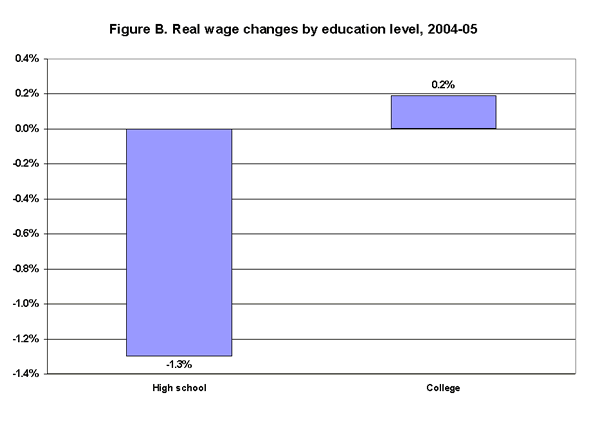See Snapshots Archive.
Snapshot for January 24, 2006.
Economy Up, Wages Down
Last year, 2005, was a solid economic year by some indicators, as the economy expanded for the fourth consecutive year. Real hourly wages, however, fell for most workers.
Each bar in Figure A and Figure B represents the percent change in the buying power of the wage for different groups of workers. Figure A shows the real wage changes of low-, middle-, and high-wage workers, corresponding to wages at the tenth, fiftieth, and ninety-fifth percentile of the wage scale. Figure B shows the change in average real wages by education level for high-school and college graduates (four-year degrees, only).


For low- and middle-wage workers, as well as those with a high school degree, real wages fell last year by 1%-2%. Those at the top of the wage scale experienced marginal gains, and real wages were essentially unchanged for college graduates.
The decline in real wages for these groups of workers was the result of a variety of factors. As shown in an earlier analysis, nominal wage growth slowed over the past few years as the slack in the job market ultimately slowed the momentum coming out of the full-employment job market of the latter 1990s. Inflation was also a factor last year, as energy costs drove prices higher (on average for the year, inflation was up 2.7% in 2004 and 3.4% in 2005). Thus, nominal wages needed to grow that much faster to beat price growth.
Other factors contributing to the decline in real wages are those that reduce the bargaining leverage of many in the workforce, including: the erosion of union power, the fall in the real value of the minimum wage, the growing imbalance in international trade, and the offshoring of white-collar jobs. As long as these forces are in play, the headwinds pushing against real wage gains for many in the workforce will remain strong.
This week’s Snapshot was written by EPI economist Jared Bernstein with research assistance from Yulia Fungard.
